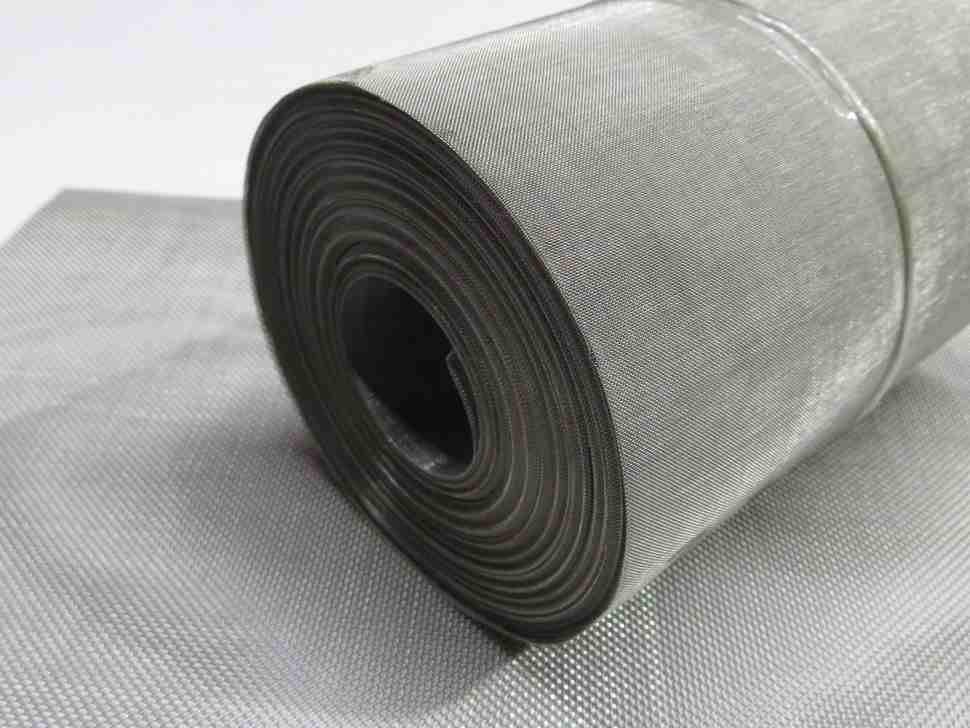
| Product name | 321 Stainless Steel Wire Mesh |
| Material | AISI 321 (17-19% Cr, 9-12% Ni, ≤0.08% C, Ti≥5×C%) |
| Mesh Size | 2 Mesh – 400 Mesh (standard) |
| Wire Diameter | 0.025mm – 3.0mm (customizable) |
| Free simple | Sample is available |
| Packaging | Jumbo bag and pallet |
| Payment method | T/T,LC, Western Union, PayPal, Escrow and Money Gram |
321 stainless steel woven mesh is a high-performance metal mesh product meticulously crafted by our company, using premium 321 austenitic stainless steel wires. As a titanium-stabilized variant of stainless steel, 321 is formulated with added titanium (Ti) to prevent chromium carbide precipitation, making it highly resistant to intergranular corrosion, especially after exposure to high temperatures. This unique characteristic positions it as an ideal choice for applications involving repeated heating and cooling cycles, where structural integrity and corrosion resistance under thermal stress are critical.
Material Characteristics
- Excellent Resistance to Intergranular Corrosion: 321 stainless steel contains approximately 17-19% chromium, 9-12% nickel, and 0.4-1.0% titanium. The addition of titanium binds with carbon in the alloy, preventing the formation of chromium carbides at grain boundaries during high-temperature processing or service. This eliminates the risk of intergranular corrosion, a common issue in non-stabilized austenitic stainless steels (such as 304) when exposed to temperatures between 425°C and 815°C. This makes 321 woven mesh highly reliable in high-heat environments.
- Superior High-Temperature Performance: 321 stainless steel maintains its mechanical strength and corrosion resistance at elevated temperatures, withstanding continuous operating temperatures up to 800°C. It resists oxidation and scaling under prolonged heat exposure, ensuring stable performance in applications such as furnace components, heat exchangers, and exhaust systems.
- Good Mechanical Properties: The woven mesh exhibits excellent tensile strength, ductility, and toughness at both room and high temperatures. It can withstand mechanical stress, thermal expansion, and contraction without cracking or deformation, making it suitable for dynamic high-heat environments.
- Moderate General Corrosion Resistance: While primarily valued for its high-temperature and intergranular corrosion resistance, 321 stainless steel also offers decent resistance to general corrosion in mild environments, including atmospheric conditions, fresh water, and some dilute acids. This versatility expands its application range beyond high-heat scenarios.
Structural Characteristics
- Uniform and Stable Mesh Construction: Our 321 stainless steel woven mesh is produced using precision weaving techniques, ensuring consistent mesh size, uniform opening distribution, and reliable filtration or screening performance. The tight interlacing of wires creates a robust structure that retains its shape even after repeated thermal cycling, ensuring long-term functionality.
- Thermal Stability: The mesh is engineered to resist thermal distortion, making it capable of withstanding rapid temperature fluctuations without warping or losing structural integrity. This stability is crucial for applications involving intermittent heating, such as in industrial furnaces or aerospace components.
- Smooth Surface and Easy Maintenance: The surface of 321 stainless steel woven mesh is smooth, minimizing the adhesion of contaminants, ash, or particles. It can be cleaned using methods suitable for high-temperature equipment, such as high-pressure water washing or mechanical brushing, ensuring hassle-free maintenance even after prolonged use in harsh environments.
- Customizable Specifications: To meet diverse industrial needs, we offer extensive customization options for 321 stainless steel woven mesh. This includes varying mesh counts (from coarse meshes for heavy-duty screening to finer meshes for gas filtration), wire diameters, mesh shapes (square, rectangular), and sheet sizes. Our technical team collaborates with customers to tailor the mesh to their specific high-temperature application requirements.
Applications
1. High-Temperature Industrial
- Heat Treatment Furnaces – Basket meshes for annealing and hardening
- Boiler Components – Burner screens and combustion chamber linings
- Exhaust Systems – Automotive and aerospace exhaust filtration
2. Chemical Processing
- Catalyst Support Grids – For petrochemical reactors
- Acid Vapor Filters – Resistant to sulfuric and nitric acid environments
3. Power Generation
- Gas Turbine Components – Heat shields and filtration elements
- Nuclear Applications – Secondary containment systems
4. Food Processing
- High-Temp Conveyor Belts – For baking and drying processes
- Sterilization Equipment – Autoclave and retort mesh components